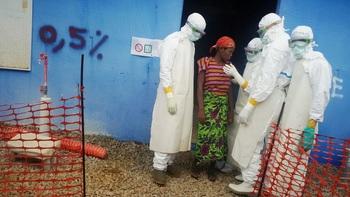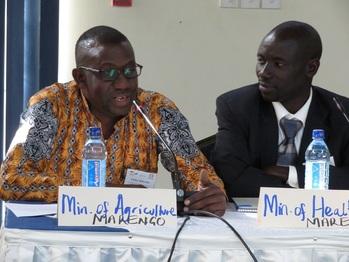Context
The Secretariat of the East African Community (EAC) is mandated to offer advisory and coordinating assistance for the EAC Partner States Burundi, Kenya, Rwanda, South Sudan, Tanzania and Uganda with their 155 million citizens in preventing and combating infectious diseases. While East Africa was not affected by the Ebola epidemic in West Africa in 2014-2016, it too frequently experiences outbreaks of the disease with fatalities. The Rift Valley, Marburg, Dengue and Crimean Congo fever, Polio and Cholera pathogens are widespread and can cause outbreaks that may affect public health, lives and livelihoods at any time. The spread of infectious pathogens is promoted by migration and transboundary trade, which is facilitated by the EAC common market, and by the impacts of climate change.
The Ebola epidemic in West Africa revealed major shortcomings that accelerated the spread of the disease. These include the lack of rapid, clear and efficient communication tailored to the population and its specific cultural and social background and the absence of close cooperation between various disciplines. Interdisciplinary cooperation is especially important, as around two thirds of infectious diseases with the potential to take on epidemic proportions are zoonoses, infectious diseases that can be transmitted between animals and humans. Preventing and combating these diseases requires an interdisciplinary approach, regional strategies and skills that are lacking in the EAC.
EAC and Partner States give the One Health approach a high priority. It involves sectors affected by and contributing to outbreaks in integrated disease management. The approach is enshrined in regional policy framework documents for pandemic preparedness, but implementation has only started. And although crucial for containing outbreaks, the discipline of risk and crisis communication is not yet anchored in the region.
Objective
The EAC Secretariat’s support for the partner countries for pandemic preparedness is improved.


